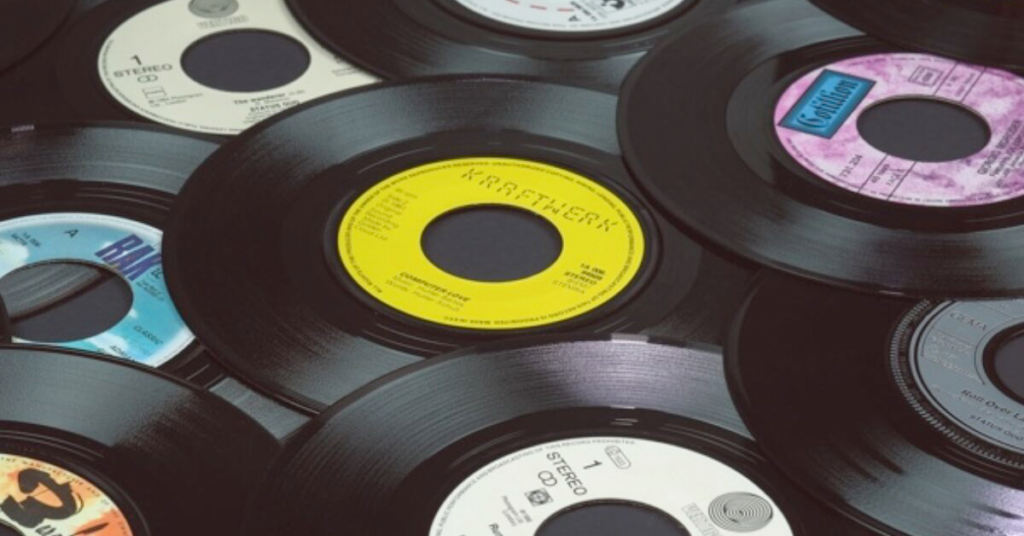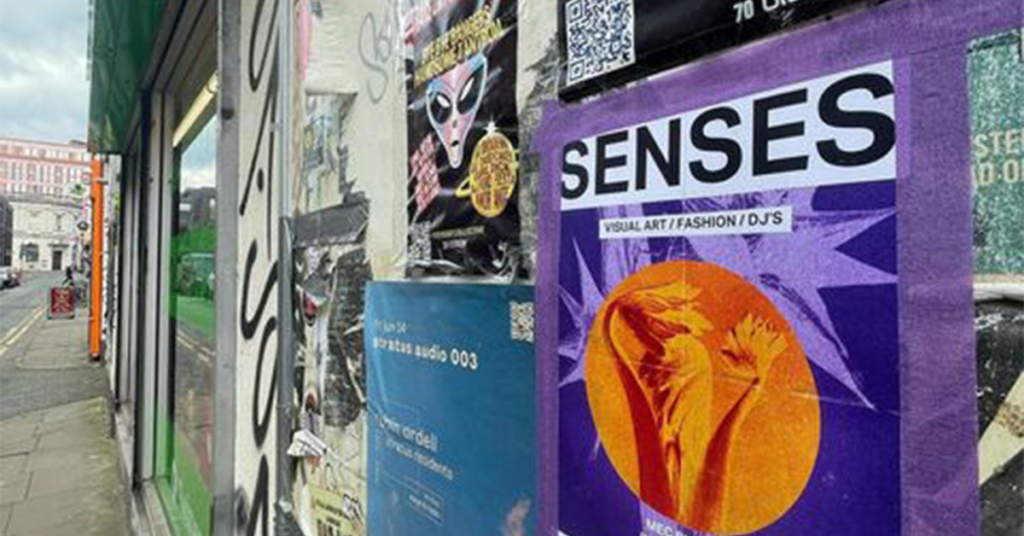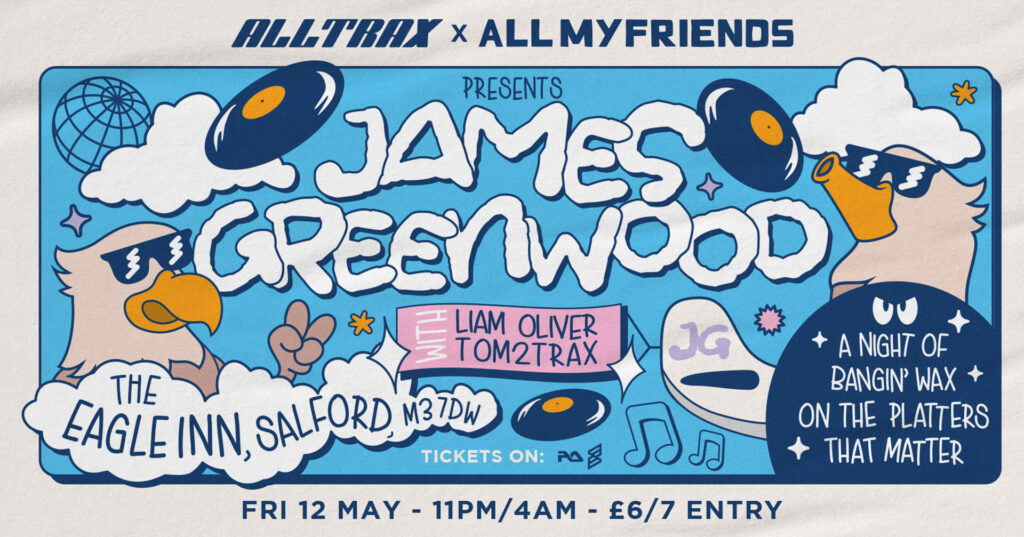
Written By – Liam Donoghue
AMF Head Honcho – Author Bio
AMF founder, resident, writer, and podcaster.
Facebook – Instagram – Soundcloud – Youtube
“I’ve got that track on vinyl”
You nod your head and try not to roll your eyes. Here we fucking go, you think to yourself.
“Actually, I only DJ vinyl”
Who invited this clown you wonder. Your eyes search around the room and they lock with a few other people who look like they’re thinking exactly the same thing.
“There’s just something amazing about playing wax don’t you think? The tactility of the medium gives you a connection with your music and a crowd that just can’t be replicated with WAVs. Vinyl takes a lot more skill too. There’s no sync button on a 1210 is there?”.
Is this geezer for real? Are they going to be here all night? Is there any way we can get rid of them?
No matter the situation or the circumstance if a group of friends are getting together for a mix, throwing a party, or just generally chatting about music there’s a strong possibility that a vinyl purist will pop their head up and join in the conversation.
They can appear from anywhere like a ninja, and before you know it your friendly conversation about music has turned into you justifying the reasons why you bought a £300 controller instead of some 1210s to an absolute stranger.
For some reason, a certain section of the dance community (and, to be fair, the general population too) has an almost cult-like obsession with vinyl records. You’re not a ‘real’ DJ unless you play vinyl they’ll sneer.
Normally the people decrying the use of controllers and CDJs are Lollipop microphone toating, washed-up Balearic dads, bitter that their moment in the DJing spotlight is fading and linking that decline with the rise of newer technologies like USBs and streaming.
This isn’t always the case though. I remember DJing on a night out and being scolded by two women because:
1) I didn’t have The 1975 on vinyl
2) I wasn’t playing vinyl
I mean seriously, what the fuck.
Bonus points too for people demanding vinyl who’ve never touched a record in their life. The audacity of sneering at a DJ for using CDJs when you’ve never even touched a mixer let alone a record.
The point I’m trying to make is that vinyl purists come in all shapes and sizes, and sometimes from the most unlikely of places, but their argument is nearly always the same which is:
“The move away from playing records and the rise of CDJs and controllers is causing a dip in the quality of dance music. This is because people no longer understand and appreciate the technical side of mixing, they just want to sync banger after banger whilst getting wrecked and growing their Instagram following”
Ok Boomer.
In this article I’m going to lay out why I think this argument is basically bullshit and give my hot take on where I think the assumption that all vinyl DJs are inherently better came from.
Remember, DJing’s about the music not the medium.
Note: This isn’t an attack on vinyl DJs
Before I go any further with this blog I just thought it’d be worth clarifying who I’m going after in this tirade. If you love playing vinyl and collecting records I’m not attacking you. When I play out in town I try as much as possible to play records, I love them and think they’re great.
People who just like playing records aren’t the issue here. It’s people who think they’re inherently better than someone who isn’t, that’s the rub. That goes for DJs themselves and punters in the crowd.
What I want to take to town and examine in this blog is the aloof attitude some people hold about vinyl. You can play nothing but vinyl and still respect other peoples choice to use CDJs, controllers etc.
But if you can’t see the worth in anything other than two waxy discs then we’ve got a problem.
Elitism can look like a pair of 1210s
I don’t think it’s a stretch to say that many people see the ability to mix vinyl as the toughest skill a DJ can master (you could argue scratching is tougher but that’s a discussion for another article). Getting to grips with two turntables, learning how to beat match by ear, and spending countless hours internalising your record collection to truly know it isn’t something that can happen overnight.
Learning to mix vinyl is a labour of love and in many cases, it can take upwards of a year to get really comfortable mixing records. Lots of people simply don’t have the time to do this. Especially if you’re exploring DJing later in life.
Time is a luxury only the wealthy can afford and for many people lower down on the socio-economic ladder freeing up an evening or two on a regular basis to practice is impossible when faced with shift work.
On the subject of money, it’s worth noting the sheer expense of vinyl. Yes, collecting records is ace (I certainly love it). But for many people, it’s really difficult to justify spending around £12-£15 on a two-track EP when the same amount of money could get you a 15-track compilation on Juno Downloads.
Simply buying enough records to put an hour’s mix together could cost around £100 which is a lot, especially if you’re just curious about DJing and would like to try out the hobby, not shell out £100 just to mix a few tracks together.
Expensive records aren’t the only thing that prohibits a lot of people from playing vinyl. Actually buying the turntables can cost you an arm and a leg. A pair of second-hand 1210s could set you back £1200.
Other brands of turntables are slightly more accessible but finding them on a second-hand site like Facebook marketplace is a game of chance and once you’ve found them there’s still delivery and shipping cost to pay for that can add an extra £100 onto whatever the decks cost you.
We tend to confuse this expense with sacrifice or prefer to tell a narrative of noble sacrifice over just wealth when we look at vinyl. Wax DJs are willing to sacrifice their hard-earned money because they know vinyl DJing is the truest form of DJing and they won’t accept any imitations. This makes them “better DJs” than people who won’t re-mortgage their house for an original pressing.
The truth is closer to the fact that they can simply just afford it.
All of these points combine together to help create the idea in people’s minds that vinyl DJing is a purer form of DJing and the people that DJ vinyl are somehow more worthy of being called DJs.
In a similar vein, if we go back to my point about having more time: the time it takes to learn how to mix vinyl leads to people believing they are sacrificing their time to master a craft. The same can be said of record shopping, DJs spend hours digging for that ‘perfect record’ and this makes them more worthy to play it.
The monetary sacrifice vinyl DJs pay too can be applied to this thinking, they spend so much of music at the expense of other areas of their life they must truly be dedicated to records, and therefore, by extension, everyone that doesn’t play records is a mouth-breathing bottom feeder.
The idea of mastering the craft and sacrificing money for records leads to elitism and breeds aloof vinyl-only DJs that love the smell of their own farts. Hey! They suffered 3 years of eating nothing but Aldi brand baked beans so they could save up for that ultra-rare 12” you’re listening to, so you better show them some GODDAMN RESPECT OK!
This is what I think the main route cause of vinyl elitism is and in the next section of this blog I’ll share why I think vinyl-only DJs feel threatened by big scary CDJs and also why their fears aren’t based in reality.
Modern controllers and technology erode the technical art of DJing
The biggest and most consistently recited argument against the use of controllers, CDJs, or really just any form of technology in DJing is that it makes ‘real’ vinyl DJs look bad.
When a DJ using a controller hits that sync button they’re knowingly and willfully running away from the challenges of DJing. They’re giving themselves a ‘get out jail free’ card anytime they’re a risk of fucking up a mix.
Vinyl purists would argue this gives audiences an unrealistic perception of what mixing is which erodes the ‘art’ of vinyl DJing. Furthermore, it makes vinyl DJs look bad when they fluff a mix. They don’t have a sync button to fall back on and every now and again, even the pros that DJ vinyl drop the ball.
Vinyl purists would argue that this creates an unfair playing field when ranking the technical abilities of DJs. This playing field would always place the DJ playing with a controller higher than the one on wax.
Firstly, this imaginary playing field we’re talking about often doesn’t exist outside of DJ circles. 95% of the crowd watching you at a gig won’t know and won’t care what medium you’re using to DJ.
Secondly, and most importantly (I can’t stress this enough btw):
Sync buttons and controllers don’t make vinyl DJs look shit.
Vinyl DJs make themselves look shit by doing shit mixes.
It’s as simple as that really. If you fuck up a mix (we’ve all been there) that’s on you, not some 19-year-old who bought a Numark Mixtrack Pro to play a few house parties for a laugh.
Somebody mixing on some Pioneer Nexus CDJs will in no way alter the skill and technique of a vinyl DJ. If your a vinyl purist and you believe the pinnacle of DJing is nailing every mix then the only person you’ve got to blame when you fuck up a mix is yourself.
Another thing worth noting is that DJs that use controllers and CDJs have a myriad of other functions and effects they can use in their mixes. These tools can seriously up the difficulty and fun of digital DJing.
Running 3 or 4 tracks at once and bringing in samples, effects and loops opens up a whole world of DJing that’s really tricky to copy with wax. You’d need three of every record you own for a start! The sync button debate is an easy way to distract people from the endless possibilities CDJs and controllers offer.
Yes I know, heavily filtered looped house music isn’t everyone’s cup of tea (It’s certainly not mine), but neither is some knackered Balaeirc dad who only plays 12-minute tracks that don’t go above 105bpm.
When it comes to this debate it’s a case of horses for courses but my point is that one doesn’t inherently carry more skill than another, both are equally valid ways to DJ, and proficiency in one type of DJing doesn’t diminish the other.
What we really need to do is get to the crux of what DJing actually is. Once we’ve done that we can begin to see why vinyl elitism and DJing oneupmanship generally doesn’t matter.
We need to ask ourselves a question: in its purest form what is DJing?
When it comes down to it this is the real question. Is DJing being able flawlessly mix and pair of tracks? Is it an encyclopedic knowledge of music? It is just a room full of vinyl records?
I think a lot of the arguments that underpin the idea that only real DJs use vinyl comes from individuals trying to define what DJing is. Music has always been very tribal and finding your group of people in the patchworks of scenes, movements and clubs is one of the funnest parts of unground music culture.
The same can be applied to DJs. Without a defined idea of what a DJ is people resort to building their own images of DJs and defending them against those that’d wish to change that picture.
This, for me, is the root cause of vinyl elitism, the erosion of the “traditional image of the DJ”. While a respect for the past is important I think we need re-define and reframe what a DJ is to avoid getting into bitter feuds about what makes a real DJ.
For me, anyone who’s combining music together to create an atmosphere is a DJ. You could be using your phone at an after-party, playing at a bar in town, or in a club in the big city.
If you’re combining tracks together to build something greater than the sum of its parts, then you’re a DJ. Even if you’re not mixing and no matter what hardware you’re using.
When you start viewing DJing like that you’ll realise how you do it doesn’t matter.






